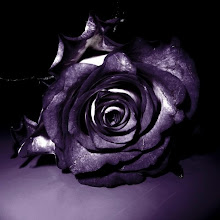Always too eager for the future, we
Pick up bad habits of expectancy.
Something is always approaching; every day
Till then we say,
Watching from a bluff the tiny, clear
Sparkling armada of promises draw near.
How slow they are! And how much time they waste,
Refusing to make haste!
Yet still they leave us holding wretched stalks
Of disappointment, for, though nothing balks
Each big approach, leaning with brasswork prinked,
Each rope distinct,
Flagged, and the figurehead wit golden tits
Arching our way, it never anchors; it's
No sooner present than it turns to past.
Right to the last
We think each one will heave to and unload
All good into our lives, all we are owed
For waiting so devoutly and so long.
But we are wrong:
Only one ship is seeking us, a black-
Sailed unfamiliar, towing at her back
A huge and birdless silence. In her wake
No waters breed or break.
In the first stanza, the author clearly sets the theme of the poem: people tend to look into the future neglecting the present. That’s where the inability to enjoy life comes from. He says that we are “too eager”, enhancing the negative connotation that that involves. He also describes people negatively saying that “we pick up bad habits of expectancy”, always longing for something that we do not have and always expecting something to happen. He describes our hopes by saying “always approaching”, which means that they never actually arrive.
The poem is dominated by an image introduced in the second stanza; an extended metaphor in which our hopes are said to be “a sparkling armada –group of ships- of promises”. Ironically, the author reflects on “how slow they are and how much time they waste” when it is actually us the ones who waste our lives by means of not leaving in the present. “They leave us holding wretched stalks of disappointment”, the author uses the word stalk, which is the long narrow part of a plant that supports leaves, fruits or flowers, to represent the potential of a flower, just as we are left with only potential and no time to fulfill our wishes and desires.
“It never anchors” and “it’s no sooner present that it turns to past” mean that when we finally get what we want we realize that we still feel empty, that the hollow cannot be filled up, so another hope arises and as we live looking into the future, the present we neglect is already considered past.
In the last stanza the writer uses a metaphor comparing death with a “black-sailed unfamiliar ship” that brings “birdless sound”, making it look very eerie and sinister. Probably he is trying to tell us that today, birds do sing, but we don’t listen to them since we are too busy looking into the future. Expectancy slowly consumes us. So, we have become functionally deaf.
From my standpoint I will say that this poem deals with false hopefulness. We are always desiring things that are out of our reach and when we finally manage to get them we don’t feel complete, so we go on to another hope or desire. We are always trying to find ourselves but we can never possibly achieve that task. I suppose that that inner hollow makes us go on living senselessly. We die without having found ourselves, and that is, indeed, the saddest tragedy. Death has, ironically, become into the only way to wake up from this nightmare.

